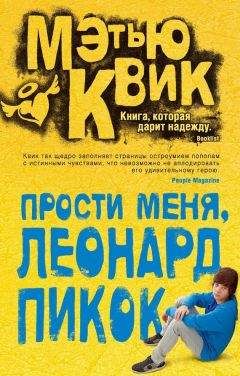Stuart Kaminsky - The Dog Who Bit a Policeman
“There will be no encounter,” said Shatalov. “I gave you my word that I would hold off killing the Tatar.”
“Hold off killing anyone,” said Rostnikov.
“I have other enemies. And we must defend ourselves.”
“And that is why you had weapons planted here?”
Shatalov shrugged. “Caution,” he said. “I live a life that requires constant caution.”
“Yet you eat at public pizza bars.”
Shatalov shook his head. “I am inconsistent, I know,” he said.
“Knowing one should do a thing and actually doing it requires a battle between logic and emotion.”
“You are a philosopher,” said Rostnikov.
“And an actor,” Shatalov added. “It is necessary in my work.
Chenko plays the wise old man of dignity. He is more cautious than I, but he has no dignity. People in our profession deserve no dignity and I don’t pretend to have it.”
“And,” said Rostnikov, “what part do you play?”
“The explosive, good-humored man who enjoys his ill-gotten gains,” said Shatalov. “Did you like that little gesture of mine?
Where I raised my hand just a little and waved my finger slightly to dismiss my people? Very understated. Very dramatic. I think I saw Anthony Quinn do it once.”
“Very dramatic,” said Rostnikov. “Do you believe in reincarnation, Shatalov?”
“No.”
“Let me tell you a story,” said Rostnikov. “An old Hindu tale I read not long ago.”
“I have time,” said Shatalov with a smile.
“Good,” said Rostnikov, ignoring the entourage that now stood back, waiting for their leader. “It seems an emperor, a very powerful emperor, decided to have built for himself the biggest monument in the history of the world. The plans were laid out for him, and he was about to order that the monument be made even larger.
Suddenly at his side there appeared a very small boy who told the emperor that he was the earthly manifestation of a humble god.”
“Very interesting,” said Shatalov. “Perhaps you could be a bit faster. I think it will soon rain.”
“It has seemed likely to rain for several days,” said Rostnikov, looking up at the clouds. “The god said, ‘behold.’ They frequently say ‘behold’ in Hindu mythology. It helps establish the tale as being from another time and place. Well, the god raised his hand and into the huge marble room in which they stood marched rows and rows of beetles, all the same, several hundred in each row, in perfect order. They marched across the floor, their millions of tiny feet scratching the marble, silent alone, loud when together. ‘What do you see?’ asked the god.
“ ‘Beetles,’ said the emperor.
“ ‘Each of these beetles was once an emperor even more powerful than you,’ said the god.”
Rostnikov stopped.
“Well,” said Shatalov. “What next?”
“Nothing,” said Porfiry Petrovich. “That is the end. When first I read this story, Shatalov, I admit to you that it frightened me just a bit. Well, more than a bit. Is life so meaningless?”
“It’s just a myth,” said Shatalov. “Policeman, you are mad.”
“After a few weeks of being afraid to sleep,” said Rostnikov softly, ignoring the gangster’s comment, “I suddenly felt relieved.
That I might be insignificant is not to be feared but embraced. It frees us in this life. It demands that we make our own meaning, that we are not above the morality that we must create if life is to have any meaning.”
“Now I know you are crazy, Rostnikov.”
“And you are a dark emperor,” answered the policeman. “Will you be a beetle? Does a headstone with a picture etched on it have any meaning? It will crumble with time. Beetles have been on earth since the beginning of life.”
“Good-bye, Rostnikov. If you decide you want to work for me, I can make it very worthwhile. That is what you are hinting at, isn’t it?”
Rostnikov smiled sadly and looked back at the flower-covered grave of the dead Tatar gangster. “Dream,” said Rostnikov, “of miles of twisting pipes in dark walls, or millions of beetles walking slowly on marble floors, their tiny legs scratching in unison.
Good morning.”
Rostnikov turned and limped toward the gate past trees and tombstones, moss-covered dirty mausoleums. Shatalov said to the departing policeman, “We did not kill Lashkovich. We did not kill the other one. I don’t remember his name. We are not trying to start a war, but the one-eyed bastard is. He killed one of my closest. . friends.”
“Chenko, too, claims that he did not kill your man,” said Rostnikov, not turning. “Perhaps I believe you both. Perhaps there is a man who wants you both at war. Think about it when not thinking of beetles, and look around at the face of each of the men who surround you.”
“Yevgeny Pleshkov did not show up at the casino last night,”
Iosef said to Yulia Yalutshkin in her apartment on Kalinin Prospekt.
Yulia was sitting on the sofa upon which Jurgen had only hours earlier spread his arms in self-satisfied and naked possession. Yulia was wearing pink silk pajamas with a matching silk robe tied at the waist with an equally pink sash. She crossed her legs and reached for a cigarette in a small case on the table in front of her.
Akardy Zelach sat in the chair that had been offered to Oleg Kisolev the night before. Iosef sat in the matching chair, into which Yevgeny Pleshkov had crumpled after killing the German.
“He is hiding,” Yulia said, lighting her cigarette and leaning back.
“From whom?”
“From you, his family,” she said. “That, of course, is only a guess.”
The policemen had come early and their knocking had immediately awakened her, but it had no effect on Yevgeny Pleshkov, who slept soundly next to her in the bedroom. Yevgeny was badly in need of a shave. When the knock came at the door, she had risen, put on her robe, and closed the bedroom door. Fortunately, when sleeping off a particularly bad binge, Yevgeny did not snore, at least he seldom did so. If the police searched, they would have no trouble finding the man they sought. He was only about twenty feet away behind a closed door. What troubled Yulia most was that Yevgeny might awaken and blunder into the room.
Yulia looked relaxed and in no hurry.
“The German,” Iosef said.
“Jurgen,” she said. “I would guess that he too is hiding.”
“Why? From whom?”
“Enemies,” she said. “When and if you meet him you will understand his ability to make enemies easily.”
“And you don’t know where he is hiding?”
She shrugged.
“I would like to talk to him.”
“I would not,” she said. “I threw him out last night. I could see he was working himself up to hit me. I’ve had more than enough of that and I had warned him. As he was about to strike me last night, I screamed. I have perfected a scream that would penetrate the walls of the Kremlin and cause the body of Lenin to rise and open his eyes. Jurgen told me to stop, that he was going, that he would not give me another ruble. Confidentially, I gambled away what little he gave me and lived on money from Yevgeny. Jurgen conveniently overlooked the fact that I gave him far more money than he ever gave me. Would you like a drink? Water with ice?
Pepsi-Cola?”
Zelach looked at Iosef, who nodded his consent, and Yulia rose elegantly, crossing the floor to the small refrigerator where she pulled out a bottle of Pepsi, opened it, and poured it over a glass she had half filled with ice.
She handed the drink to Zelach, who took it with thanks.
“And you, big policeman? What can I give you?” She stood provocatively over Iosef with the touch of an inviting smile.
“Yevgeny Pleshkov,” he said. “The German. Do you have either of those or know where I can get them?”
“Vodka, ginger ale, Pepsi, brandy, whiskey, and even some French wine,” she said, “but I am all out of Yevgeny Pleshkovs and Germans named Jurgen.”
“A man of Pleshkov’s description was seen entering this building late last night,” said Iosef. “He is a very famous man. People remember him.”
“I was out,” she said. “At Jacko’s Casino.”
“I was there,” said Iosef. “I didn’t see you.”
She shrugged. “We must have missed each other. That is too bad. I would have been happy to entertain you for the evening. I understand that I have a well-developed ability to keep men, and occasionally women, happy, sometimes for an entire night.”
Zelach shifted uneasily. Iosef went on. “Yevgeny Pleshkov and another man were seen leaving this building two hours after they arrived,” said Iosef. “What did they do for two hours if you were not here?”
“I must make a note to give the doorman a smaller bonus,” she said, looking at the end of her cigarette.
“Where were you?” Iosef repeated.
“Jacko’s and then dinner with some businessmen,” she said, going back to the sofa. “I don’t know their names or where they live. I may have seen them about before.”
“Can you explain what Yevgeny Pleshkov was doing in this building for two hours?” asked Iosef pleasantly.
“Perhaps business?” she tried. “Yevgeny knows many people.”
“I am sure,” said Iosef. “But in this building I think he knows only you.”
“Then,” she said, “who knows?”
“Perhaps we will,” said Iosef. “There are twelve uniformed officers checking all the apartments in the building.”
“Impressive,” she said. “You must want Yevgeny very badly.”
“Very badly,” said Iosef.
There was a knock at the door and Yulia gracefully crossed the room to answer it. Iosef thought she looked remarkably beautiful.
“Inspector Rostnikov, Inspector Zelach,” the young policeman with a thin mustache said, unable to take his eyes from the tall beauty before him. “Please come. We think we have found Yevgeny Pleshkov.”
“Where?” asked Iosef, rising.
The young policeman looked at Yulia, unsure of what he should say.
“Where?” Iosef repeated.
“A shed on the roof of the hotel,” the young man finally said.
“He-the body-is badly burned.”
“I think,” said Iosef to Yulia, “you had better get dressed. Do not leave the apartment. Inspector Zelach and I will come back shortly to continue our chat. There will be a uniformed officer outside your door.”
“For my protection?” she said with a smile.
“Of course,” said Iosef.
Zelach quickly finished his Pepsi-Cola and placed the glass on the table as he rose.
Perhaps a second after the door to the apartment had closed and the two policemen had departed, the bedroom door opened and a very sober Yevgeny Pleshkov said, “I heard.”
“So,” she said, moving past him toward the bedroom and touching his bristly cheek on her way, “you are the brilliant politician, the hope for Russia. What do we do now?”
Pleshkov had no idea.
“We had better think quickly,” she said, putting out her cigarette and taking off her pink pajamas.
Yevgeny Pleshkov headed for the cart containing the liquor bottles.
“Well,” Yulia said with a sigh. “Let us try what has always worked in the past.”
“Which is?” asked Pleshkov.
“Yevgeny,” she said, “you may be a brilliant politician, but you lack common sense. Go in the bathroom. Shave quickly. I’ll get you out of here.” Standing naked and looking quite beautiful to Yevgeny, Yulia began to laugh.
“What is funny?” he asked.
“I am an uneducated high-priced prostitute,” she said, “and I am giving orders to the man who may soon rule all of Russia.”
“You are very beautiful,” Yevgeny said, pouring himself a drink.
“Let us hope the policeman outside the door agrees.”
The lobby of the hotel was relatively empty as Elena Timofeyeva headed toward the elevator. Sasha Tkach, she was sure, was still asleep. The night before they had seen a lot and drunk more than a human being should be expected to. They had been guided by Illya and Boris to a lobster dinner at the Anchor in the Palace Hotel-Sasha had never had lobster before and had to watch Elena proceed before he began. Elena had eaten lobster more than once when she had been a student in the United States.
Both Illya and Boris were accompanied by young women, very young women, professionally made up and wearing dresses that were definitely French designed. The two women had spoken fewer than five or six words each. They smiled politely at jokes and were serious at proper moments. After the dinner, which was liberally accompanied by mixed drinks, the group moved on to three casinos-drinking, gambling, laughing. Elena hadn’t liked it, nor had she liked Boris checking his watch and saying, “It’s time.”
“For what?” Sasha had said drunkenly.
“The dogfight,” said Illya. “Now, tonight. Let’s go get your dog.”
“I thought that was tomorrow,” Elena said.
Boris leaned toward her, his breath strong and unpleasant, and said, “The fight between your Tchaikovsky and our Bronson is tomorrow night, if they are both in shape. Tonight is just to get the bettors interested. Promotion, hype, like the Americans with boxers.”
It was Sasha’s call, and Elena hoped that he was sober enough to make the right one. She thought of saying something like, “We haven’t prepared our dog for anything tonight,” or “Dmitri wouldn’t risk his prime animal before a big fight.” But she couldn’t speak. She was a woman. Sasha was supposedly the scheming, fear-less, and ruthless man.
“Fine,” said Sasha with a smile, wiping his face with a napkin and tearing the tail off of a shrimp from the huge chilled pile on the table.
“We had better go now,” said Illya. “After we finish our final drinks. A toast.” He raised his glass. “Mir i Druzhbah, peace and friendship.”
When his last round of drinks was finished, everyone at the table rose, Sasha reaching for one last shrimp. Neither Boris nor Illya appeared to pay the bill. When the group was out on the street, all six of them climbed into the black limo that appeared at the curb. The failure of the threatened rain to begin falling was beginning to bother Elena. When it finally rained, it might be an omen that something bad was going to happen. It was a thought worthy of Zelach’s mother. Elena shook off the idea. Touches of superstition that were also the legacy of her mother back in Odessa. Anna and her sister, Elena’s mother, had the same general build, the same voice, and almost the same face, but they were nothing alike in background and thought. Elena’s mother was a fish sorter on the docks. She was uneducated and surrounded by demons. Elena had escaped from her mother and her family in Odessa the day she turned eighteen.
And now Elena was surrounded by demons.
The three couples were driven to the hastily built kennel in the garage behind a pair of stores on the Arbat. The three men and Elena had gone single file down a narrow passageway between two buildings. The two young women, fearful of ruining their clothes, had remained behind in the car.




